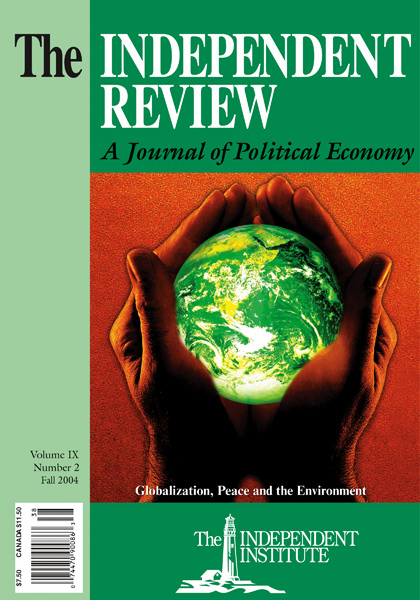Robert Moses, who dominated urban planning in New York City and New York State from the 1930s to the 1960s, personified the hubris of central planning. Perhaps America’s leading practitioner of constructivism in politics and in architecture, Moses demonstrated in his work all of the major pitfalls of socialism—unintended and unwanted consequences, the inability to allocate scarce resources rationally, the abandonment of ordinary morality, and the extreme disregard for the wishes of those whose lives are being planned.
Gene Callahan is currently completing a Ph.D. dissertation at Cardiff University.
Sanford Ikeda is professor of economics at Purchase College, State University of New York.
EconomistsEconomyFree Market EconomicsLand UseLaw and LibertyPhilosophy and ReligionProperty Rights, Land Use, and ZoningPublic ChoiceRegulation
| Other Independent Review articles by Gene Callahan | ||
| Winter 2008/09 | The Myth of the Rational Voter: Why Democracies Choose Bad Policies | |
| Summer 2008 | Economic Analysis, Moral Philosophy, and Public Policy | |
| Fall 2005 | Oakeshott and Mises on Understanding Human Action | |
| [View All (4)] | ||
| Other Independent Review articles by Sanford Ikeda | |
| Spring 2020 | The Economy of Cities: Jane Jacobs’s Overlooked Economic Classic |
| Winter 2011/12 | Back to the Land: Arthurdale, FDR’s New Deal, and the Costs of Economic Planning |









